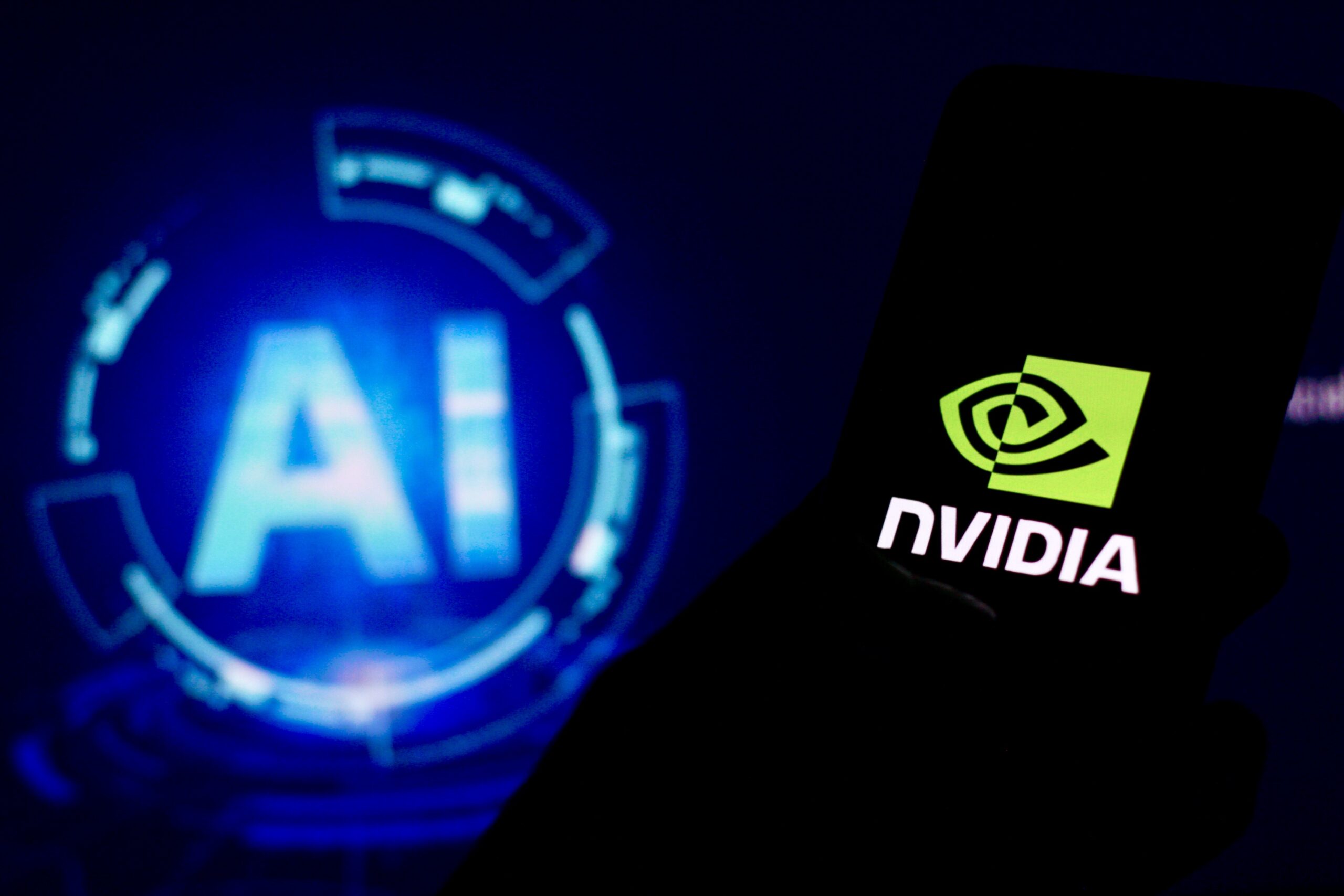Navigating the rapidly evolving landscape of artificial intelligence, NVIDIA’s commitment to annual AI chip releases remains as a beacon of innovation. The tech giant’s ambitious roadmap, featuring the forthcoming Blackwell Ultra chip and Rubin AI platform, promises to reshape the boundaries of AI processing capabilities. These advancements are also set to revolutionize data center applications, offering unprecedented computational power, and fueling AI-driven initiatives. By staying abreast of NVIDIA’s cutting-edge developments, stay at the forefront of technological progress, ready to harness the full potential of these groundbreaking AI chips. Witness a new era of AI acceleration as NVIDIA’s annual releases propel projects to new heights.
NVIDIA Kicks Off New Era of Annual AI Chip Releases
As you navigate the rapidly evolving landscape of artificial intelligence, NVIDIA’s recent announcement marks a significant milestone. The tech giant has committed to an annual release cycle for its AI chip families, ushering in a new era of consistent innovation and performance improvements.
Blackwell Ultra: The Next Frontier
- At the forefront of this initiative is the upcoming Blackwell Ultra chip. This cutting-edge processor also redefines the boundaries of AI processing power. Exploring its capabilities, you’ll find that its design meets the ever-growing demands of complex AI models and data-intensive applications. The Blackwell Ultra represents NVIDIA’s commitment to pushing the envelope in AI acceleration, offering you unprecedented computational prowess for your most challenging AI tasks.
The Rubin AI Platform: A Holistic Approach
- Complementing the Blackwell Ultra is the Rubin AI platform. This comprehensive solution revolutionizes how you approach AI development and deployment. By integrating advanced hardware with sophisticated software tools, the Rubin platform aims to streamline your AI workflows and enhance overall productivity. Whether you’re working on machine learning models, computer vision applications, or natural language processing tasks, the Rubin platform supports your diverse AI needs.
Implications for Data Centers and Beyond
- NVIDIA’s annual release strategy is particularly significant for data center applications. As you manage and scale your AI infrastructure, you can also anticipate regular performance boosts and new features. This predictable cadence of improvements will allow you to plan your upgrades more effectively, ensuring that your data centers remain at the cutting edge of AI capabilities. Moreover, this approach is likely to accelerate the pace of AI innovation across industries, from healthcare and finance to autonomous vehicles and smart cities.
By committing to this ambitious release schedule, NVIDIA is not only setting a new standard for the AI chip industry but also providing you with a clear roadmap for future AI advancements. As you prepare for this new era of AI acceleration, staying informed about these annual releases will be crucial for maintaining a competitive edge in your AI-driven projects and applications.
What to Expect from NVIDIA’s Upcoming Blackwell and Rubin Chips
As NVIDIA continues to push the boundaries of AI processing power, you can also anticipate significant advancements with their upcoming Blackwell and Rubin chip families. These new offerings revolutionize data center applications and AI capabilities across various industries.
Blackwell Ultra: A Leap in AI Performance
The Blackwell Ultra chip represents NVIDIA’s next-generation AI processor, building upon the success of its predecessor, the Hopper architecture. You can expect substantial improvements in performance and efficiency, with Blackwell likely to offer:
- Enhanced tensor core capabilities for accelerated deep learning tasks
- Improved memory bandwidth and capacity to handle larger AI models
- Advanced power management features for more efficient data center operations
This chip delivers unprecedented AI processing power, enabling you to tackle more complex and demanding workloads with greater speed and accuracy.
Rubin AI Platform: Expanding AI Possibilities
NVIDIA’s Rubin AI platform complements the Blackwell chip, offering a comprehensive ecosystem for AI development and deployment. You can anticipate:
- Seamless integration with NVIDIA’s software stack, including CUDA and cuDNN
- Enhanced support for emerging AI frameworks and applications
- Improved scalability for distributed AI training and inference
The Rubin platform aims to provide you with a more streamlined and efficient environment for developing and deploying AI solutions across various domains, from natural language processing to computer vision.
Impact on Data Center Applications
With these new chip families, you can also expect significant enhancements in data center performance and capabilities. The combination of Blackwell and Rubin is likely to enable:
- Faster training of large language models and other AI systems
- More efficient handling of complex data analytics workloads
- Improved support for edge AI applications and real-time processing
As NVIDIA continues its annual release cycle for AI chips, you can look forward to a steady stream of innovations that will shape the future of artificial intelligence and high-performance computing.
How New Chips Will Boost AI Processing Power

As you explore the landscape of AI technology, you’ll find that new chip designs revolutionize processing capabilities. These advancements will significantly impact the performance and efficiency of AI systems across various applications.
Enhanced Computational Power
- The upcoming chip families, including NVIDIA’s Blackwell Ultra and Rubin AI platform, are engineered to deliver unprecedented computational power. You can expect these chips to handle complex AI algorithms with greater speed and precision. This boost in processing power will also enable you to train larger models and process more extensive datasets in less time, accelerating AI development cycles.
Improved Energy Efficiency
- One of the key benefits you’ll notice with these new chips is their improved energy efficiency. As data centers continue to grow, power consumption becomes a critical concern. The latest chip designs incorporate advanced manufacturing processes and architectural improvements that allow for higher performance while consuming less power. This efficiency will help you reduce operational costs and minimize the environmental impact of AI infrastructure.
Specialized AI Acceleration
- These new chips are not just about raw power; they’re also designed with specialized circuits tailored for AI workloads. You’ll find dedicated tensor cores and optimized memory hierarchies that significantly speed up machine learning operations. This specialization means you can run complex neural networks more efficiently, enabling real-time AI applications that were previously impractical.
Scalability and Integration
- As you implement these new chips, you’ll appreciate their enhanced scalability. They work seamlessly in multi-chip configurations. Thus, allowing you to build more powerful AI systems by combining multiple units. Additionally, improved interconnect technologies will enable better integration with other components in your data center, creating a more cohesive and efficient AI computing environment.
By leveraging these advancements in chip technology, you’ll be able to push the boundaries of what’s possible in AI, from more accurate natural language processing to sophisticated computer vision applications. The annual release cycle of these chips ensures that you’ll have access to cutting-edge technology to keep your AI initiatives at the forefront of innovation.
Applications for NVIDIA’s New AI Chips in Data Centers
NVIDIA’s latest AI chips are poised to revolutionize data center operations across various industries. As you explore the potential of these cutting-edge processors, you’ll discover a wide range of applications that can significantly enhance your data center’s performance and capabilities.
Accelerating Machine Learning Workloads
- The new AI chips from NVIDIA offer unprecedented processing power, enabling you to train and deploy complex machine-learning models with remarkable speed and efficiency. You’ll notice a significant reduction in training time for large-scale neural networks, allowing for faster iteration and development of AI-driven solutions. This acceleration can be beneficial in fields like natural language processing, computer vision, and predictive analytics.
Enhancing High-Performance Computing
- With NVIDIA’s advanced AI chips, your data center can tackle computationally intensive tasks with ease. You’ll be able to process massive datasets and perform complex simulations at speeds previously unattainable. This capability is invaluable for scientific research, financial modeling, and climate prediction, where processing power directly correlates with the depth and accuracy of insights gained.
Optimizing Real-Time Analytics
- The new chips excel at real-time data processing, enabling your data center to handle streaming analytics with unprecedented efficiency. You can now process and analyze vast amounts of data in real-time, facilitating immediate decision-making in areas such as fraud detection, network security, and IoT applications. This real-time capability can give your organization a competitive edge in rapidly evolving markets.
Improving Energy Efficiency
- NVIDIA’s latest AI chips are designed with energy efficiency in mind. By incorporating these processors into your data center, you’ll likely see a reduction in power consumption relative to computational output. This improvement not only lowers operational costs but also aligns with sustainability goals, helping you build a more environmentally friendly data center infrastructure.
The Future of AI Thanks to NVIDIA’s Annual Chip Launches
Accelerating Innovation
- NVIDIA’s commitment to annual AI chip releases is set to revolutionize the landscape of artificial intelligence. As you look to the future, you’ll witness an unprecedented acceleration in AI capabilities, driven by the consistent introduction of more powerful and efficient chips. The upcoming Blackwell Ultra chip and Rubin AI platform are just the beginning of what promises to be a transformative era for AI technology.
Enhanced Processing Power
- With each new chip family, you can expect significant leaps in processing power. These advancements will enable you to tackle increasingly complex AI tasks with greater speed and efficiency. Data centers will benefit immensely, as the enhanced capabilities of NVIDIA’s chips will allow for more sophisticated algorithms and larger neural networks to be deployed at scale.
Expanding AI Applications
- The annual release cycle of NVIDIA’s AI chips will open doors to new applications across various industries. You’ll see AI making strides in fields such as healthcare, finance, and autonomous systems. The improved performance of these chips will enable more accurate predictions, faster real-time decision-making, and more human-like interactions with AI systems.
Democratizing AI Development
- As NVIDIA continues to push the boundaries of AI chip technology, you can anticipate a democratization of AI development. The increased accessibility of powerful AI tools will allow more researchers, developers, and businesses to innovate in the field. This broader participation will likely lead to a diverse range of AI solutions addressing global challenges and improving everyday life.
Sustainable AI Growth
- NVIDIA’s focus on regular chip advancements also promises more energy-efficient AI operations. You can look forward to AI systems that deliver superior performance while consuming less power, aligning with the growing emphasis on sustainable technology. This approach will be crucial as AI becomes increasingly integrated into various aspects of society and business operations.
In A Nutshell
As you’ve seen, NVIDIA’s commitment to annual AI chip releases promises to revolutionize the industry. The upcoming Blackwell Ultra chip and Rubin AI platform represent significant leaps forward in processing power and data center capabilities. By staying at the forefront of AI technology, NVIDIA is positioning itself as a leader in this rapidly evolving field. As these advancements continue, you can expect to see dramatic improvements in AI applications across various sectors. Keep an eye on NVIDIA’s future announcements, as their innovations will likely shape the landscape of artificial intelligence for years to come. The potential impact on your business and daily life could be profound, making it crucial to stay informed about these developments.
More Stories
Confluent Unifies Real-Time and Historical Data to Power Next-Gen AI and Analytics
Confluent has made major progress by upgrading its Confluent Cloud platform. These enhancements aim to unify data streams for advanced AI applications.
AI Synergy: Exabeam and Vectra AI Forge Unified Front Against Evolving Cyber Threats
The alliance between Exabeam and Vectra AI marks a major cybersecurity advancement. This strategic partnership merges top-tier technologies from both companies to enhance defenses against complex cyberattacks.
ChatGPT Deep Research Now Integrates with Dropbox and Box for Enhanced Data Access
ChatGPT Deep Research integration with Dropbox and Box enhances data access for users enabling them to link cloud storage accounts directly to Deep Research.
Next-Gen Xeon 6 CPUs Elevate Data Center AI Workloads in Nvidia DGX B300
In the rapidly evolving landscape of artificial intelligence, staying ahead requires cutting-edge technology that can efficiently handle complex workloads. You...
Apple Trims Features to Fast-Track Smart Home Hub Amid Siri AI Delays
At the core of these delays is the sluggish advancement in Siri AI enhancements, pivotal to the hub’s operation.
Apex Group Taps Tom Bennett to Spearhead Global Fintech Strategy
Apex Group Ltd. has strategically appointed Tom Bennett as Global Head of Fintech. This pivotal role highlights Apex Group’s commitment to advancing its digital capabilities across private markets, capital markets, and digital assets.


